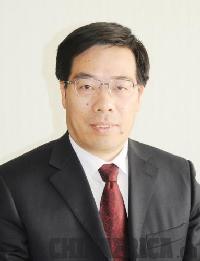| 
The First China-Africa Think Tanks Forum (CATTF) will be held from October 27 to 29 in the cities of Hangzhou and Jinhua, Zhejiang Province. As a sideline event of the eighth Senior Officials Meeting of the Forum on China-Africa Cooperation (FOCAC), CATTF, hosted by Zhejiang Normal University (ZNU), aims to build a mechanism for Chinese and African think tanks to cooperate and exchange ideas to promote Sino-African relations. Recently, Wu Fengmin, ZNU's President, shared his views on China-Africa think tank exchanges with ChinAfrica reporter Liu Jian. Edited excerpts are below.
What was ZNU's involvement as organizer of the forum? What are your expectations for October?
We paid much attention to this forum. The theme of CATTF I is "Sino-African Relations in the Second Decade of the New Century," which will be broken down into three sub-topics: first, Africa's security situation and Sino-African cooperation in the fields of peace and security; second, Africa's finance and investment environment and Sino-African cooperation in these fields; and third, people-to-people and cultural exchanges between China and Africa and the role of [their] think tanks.
I hope and believe that CATTF will work as a bridge to bring together Chinese and African think tanks to share insights on future strategies. Through candid dialogues, we can review the past, face challenges and look ahead to the future, so that Sino-African relations will better benefit African and Chinese people.
What are the long-term plans for the forum?
We plan to build up CATTF to become an internationally influential, high-end academic platform. [We hope] to boost the revival of "Asian-Afro Knowledge" and "Asian-Afro Wisdom" globally, and to encourage Africans in seeking their own paths of development. [We] will continue to improve forum operations, build hardware and software platforms, set up a website, publish research findings, and better facilitate policymaking.
Why are think tank exchanges necessary? What role will they play in Sino-African relations?
China and Africa are, respectively, the country and continent with greatest development potential in the world. Sino-African cooperative relations have [already] accumulated innovative knowledge. But, with the deepening of relations, new challenges and problems arise, and thus we need to adjust related policies. Therefore, Chinese and African scholars should be conducting more in-depth discussions, reviewing the practices and theories of Sino-African cooperation, and enhancing the right to speech on both sides.
How would you describe the current climate of China-Africa think tank exchange?
Exchange between Chinese and African academics is increasing, and the same should apply to think tanks. Currently, most exchanges are temporary, limited in scope and participation. This needs to be improved. When criticized by the West, Chinese and African scholars, in most cases, respond passively rather than take the initiative to dictate topics for discussion. Thus it's high time to build a high-end and sustainable China-Africa think tank forum.
Aside from CATTF, what kinds of African studies programs are offered at ZNU?
The Institute of African Studies at Zhejiang Normal University (IASZNU) is the first institute for comprehensive African studies among Chinese universities. Headed by Professor Liu Hongwu, a well-known African studies specialist, it consists of the Center for African Political and International Relations Studies, the Center for African Economic Studies, the Center for African Educational Studies, the Center for African Historical and Cultural Studies, the Center for FOCAC Studies, and the African Museum.
We set up a website (http://ias.zjnu.cn) in five languages, including Chinese, English, French, Hausa and Swahili. The institute has completed many high-level research projects, and many suggestions have been adopted by the Chinese Government. The Ministry of Education says IASZNU has "become the country's base for African studies and consulting services."
What kinds of exchange is IASZNU involved with at home and abroad?
IASZNU works closely with other domestic research institutions on Africa, and has carried out joint research and graduate programs with think tanks and universities from over 20 African countries. Erastus Mwencha, Vice President of the African Union Commission, and many officials from other international organizations and think tanks have visited our institute. We have conducted joint research projects with African scholars in the fields of politics and security, China-Africa economic and trade cooperation, education and human resources development.
China's first Africa-oriented business school was established at your university in 2010. What programs do you offer?
The school is aimed at cultivating professional business management personnel who understand Africa and China. With the support of China Scholarship Council, the school enrolls students for master degrees in China-Africa Business Management. It also provides vocational training for African enterprises in China and Africa-based Chinese enterprises.  |